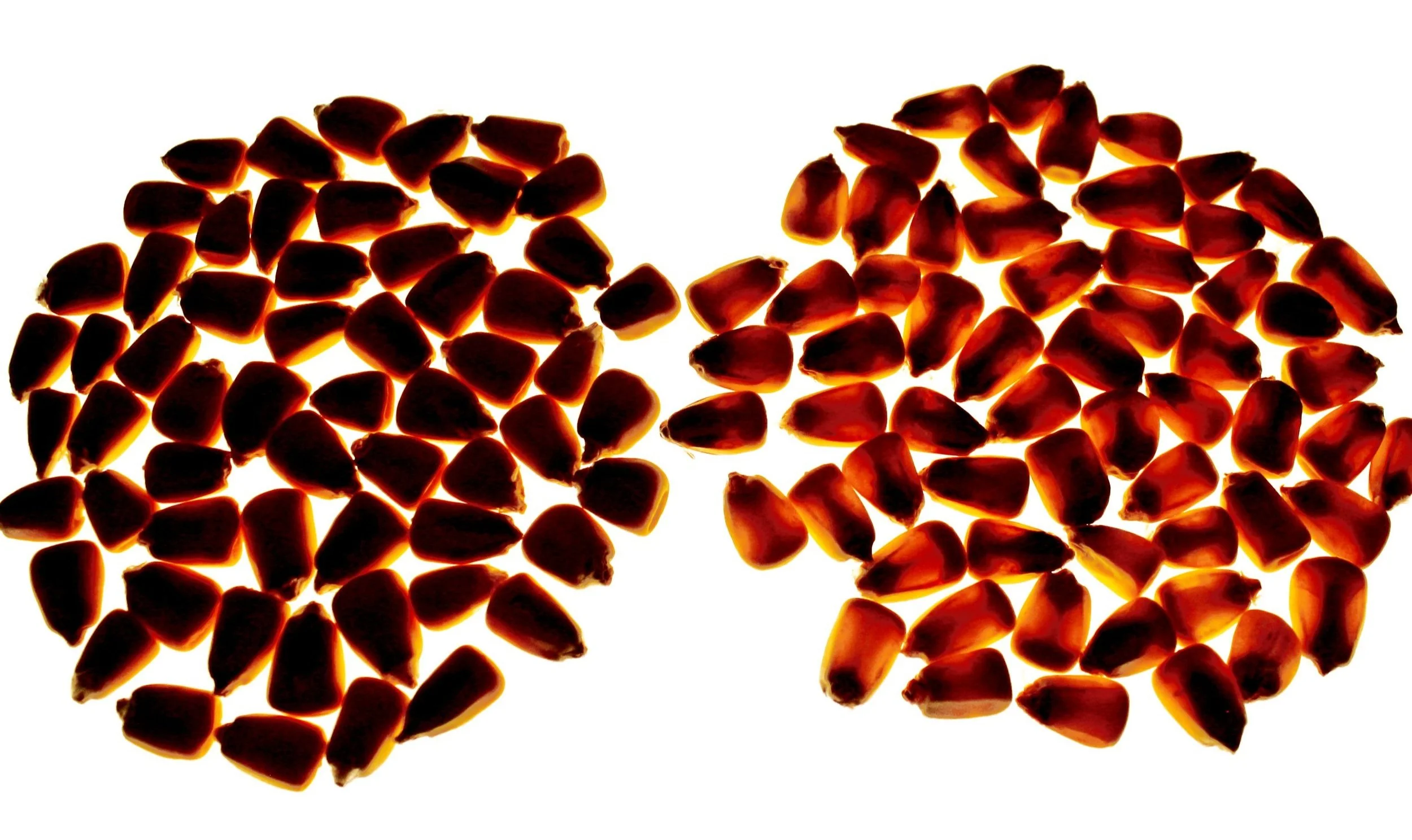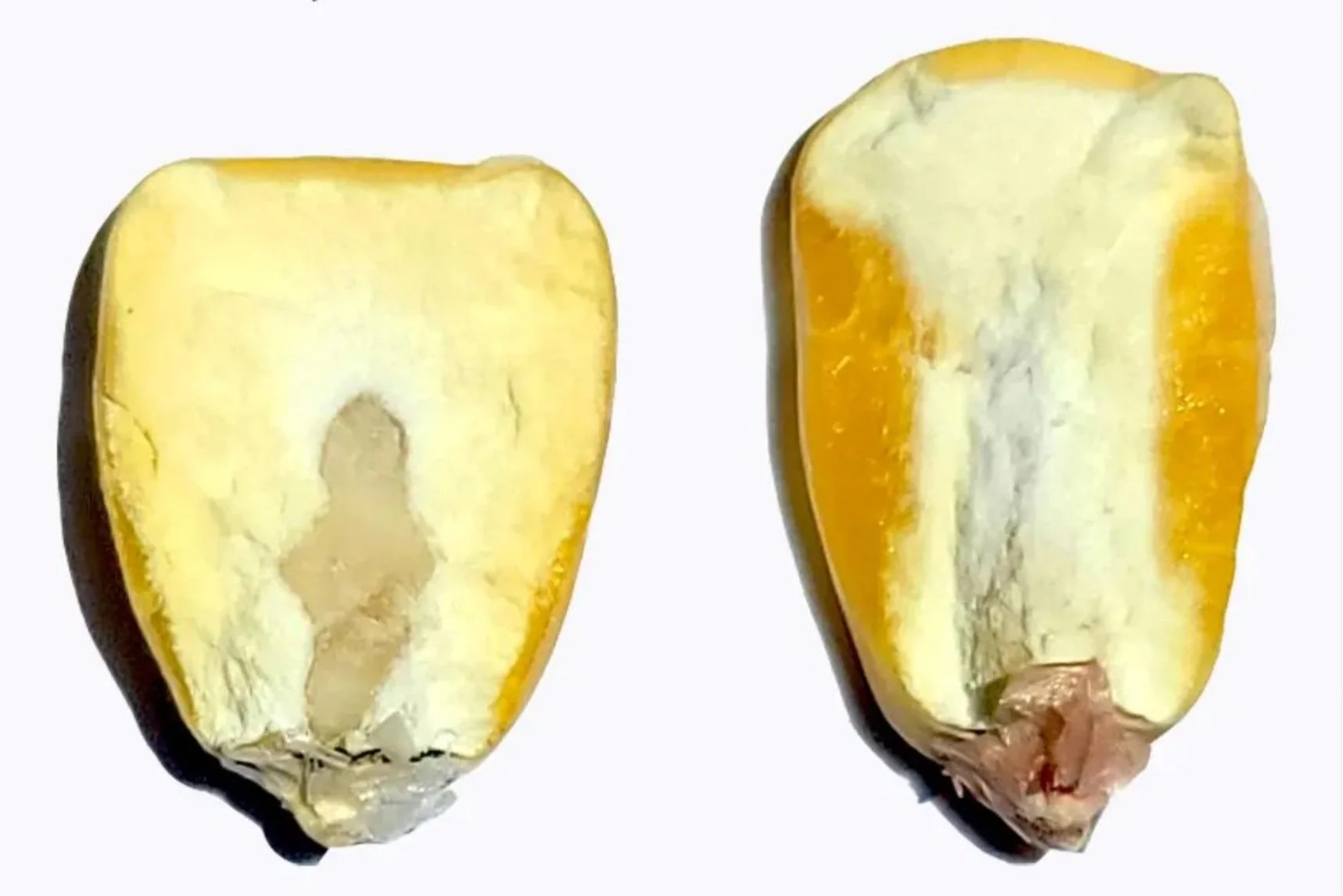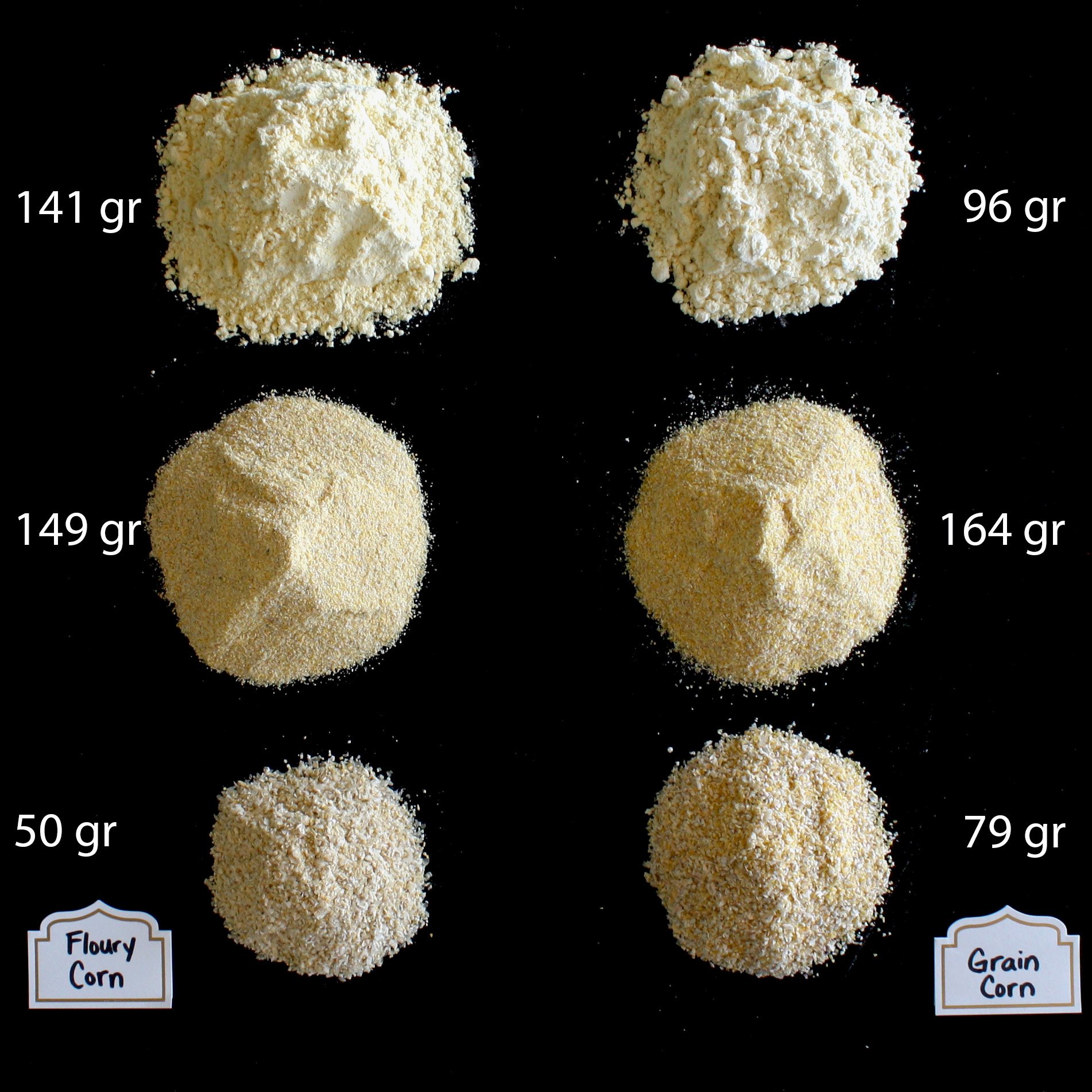
Glenn’s Floury Corn gets its unique starch properties from a naturally occurring recessive gene called opaque-1.
What is Glenn’s Floury Corn and why is it so special?
Glenn’s Floury Corn is not your typical grain corn. Developed through traditional breeding methods, this unique product makes use of a naturally occurring recessive gene, called opaque-1, which results in a floury kernel type. Normal corn has a relatively “vitreous” or glass-like kernel. When we compare the two kernel types on a light table, we see that the “opaque” kernels absorb light and appear dark, while the “vitreous” kernels transmit light and glow. When we cut open a floury kernel and compare it to a normal corn kernel, we can see the difference in composition:
Glenn’s Floury Corn (left) and a “normal” grain corn (right) on a light table.
Cross-section of Glenn’s Floury Corn (left) and a “normal” grain corn (right).
This simple change in kernel endosperm texture is the basis of numerous benefits in food applications, nutrition, processing, sustainability and identity preserve.
A few examples of baked-goods made from Glenn’s Floury Corn.
Glenn’s Floury Corn proudly shows up in flavor, texture and appearance, while delivering on gluten-free versions of classic recipes and offering innovative recipes that have been developed specifically for this ingredient.
Through its decades-long development, Glenn’s Floury Corn has always been selected for flavor by our breeders. When we bake with the milled flour, we achieve a nutty and pleasant corn-forward flavor, accompanied by a rich golden color. The texture is light and silky. These characteristics offer the opportunity to produce delicious gluten-free foods from milled whole or sifted grain. Compare this to the industry-standard gluten-free baking mixes, which are bland blends of highly refined starches that aim to replace wheat products without delivering any character of their own, and that typically result in an inferior eating experience.
How is it different from normal grain corn?
When milled, Glenn’s Floury Corn produces a higher proportion of fine grits compared to normal corn, offering the opportunity to mill a single grain product for baking. This difference in fraction components makes it possible to be used as a whole grain product in baking, offering a healthier alternative to the highly processed gluten-free flours that are the industry-standard.
We have observed in our baking and pasta experiments that this flour absorbs water more readily, producing more consistent batters and doughs. Baked goods are softer, silkier, fluffier and do not carry the gritty mouthfeel of products made with normal corn. Products made with Glenn’s Floury Corn are also brighter in color.
Researchers at Monterrey Tec in Mexico (Instituto Tecnologico Y De Estudios Superiores De Monterrey) found that Glenn’s Floury Corn contained a lysine content in the upper range of the expected value and a higher Protein Digestibility Corrected Amino Acid Score (PDCAAS) of 53% compared to 40-45% in normal corn.
Glenn’s Floury Corn (left) compared to normal grain corn (right). Both corn types have been milled at the same setting, and then sifted into fine, medium and course grits. Glenn’s Floury Corn produces a higher proportion of fine grits.
Glenn’s Floury Corn being milled with a KoMo Mill.
We sift our milled grain through a fine sieve to prepare the flour for various recipes.
Glenn’s Floury Corn is also Identity Preserved as a result of the recessive nature of the opaque-1 gene. You know it’s Glenn’s Floury Corn just by looking at the grain — and that it’s non-GMO because kernels that are pollinated by commercial GMO grain corn varieties will not be floury.
Plant Breeder Margo Lee introduces Glenn’s Floury Corn
How is Glenn’s Floury Corn more sustainable than other flours?
Glenn’s Floury Corn is higher yielding compared to other flour-producing crops including wheat, rice, legumes and nuts. It may also be grown over a wider geography than several of these crops, which allows for more local production and reduced shipping distances. Glenn’s Floury Corn requires less energy to process than nut and cassava (tapioca) flours. In addition, Glenn’s Floury Corn has been bred to perform in agronomically challenging environments.
In a world where we have a declining agricultural land base due to human development, and an increasing population, it is critical to be able to feed more people with less land and energy.






